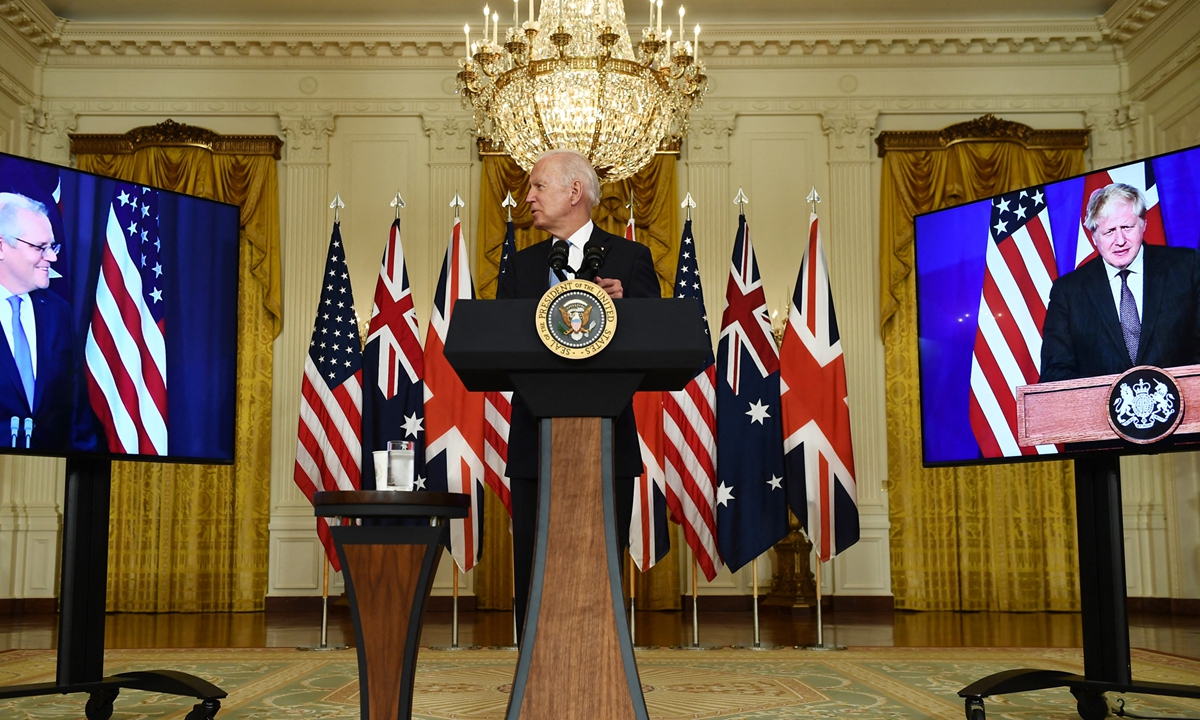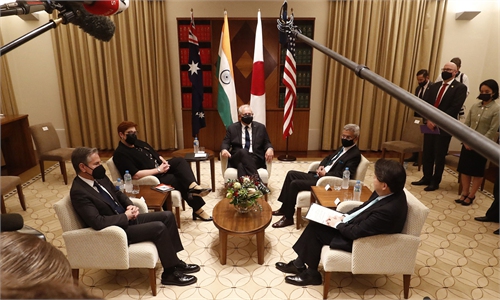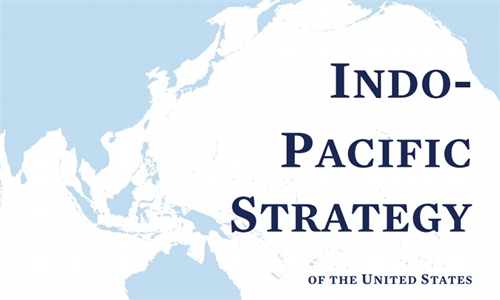
US President Joe Biden participates in a virtual press conference on national security in the White House in Washington, DC, on Wednesday US time, with British Prime Minister Boris Johnson (right) and Australian Prime Minister Scott Morrison in attendance via video link. Biden announced that the US is forming a new Indo-Pacific security alliance with the UK and Australia. Photo: AFP
In a joint statement issued on Thursday after a video call between British Prime Minister Boris Johnson and his Australian counterpart Scott Morrison, the UK announced plans to commit 25 million pounds ($34 million) to strengthen regional resilience in areas including cyberspace, state threats and maritime security in the Indo-Pacific.It remains vague as to what exactly the UK and Australia intend to do in the Indo-Pacific region with such a plan. If they are interested in participating in the development of network infrastructure in the Indo-Pacific, the funds the UK announced is clearly far from sufficient to support any major project. More importantly, Australia and the UK do not have much of an advantage in the development of network technology, particularly 5G, and they cannot provide any hardware support. That makes it untenable that they are actually aiming to help develop network infrastructure in the region.
A more plausible motive behind such a move is their ill-advised intention to blindly follow the US in the latter's containment strategy against China, which is in line with the two countries' previous attempts with the US. Both the UK and Australia are members of the US-led trilateral security partnership called AUKUS, which supports Australia's stated goal of acquiring nuclear-powered submarines, among other things.
The UK's $34 million pledge might be another step related to the trilateral partnership; however, the figure is completely overshadowed by Australia's commitment under AUKUS, and the future of the AUKUS may depend on how long Australia is willing to pay for the geopolitical confrontation game.
It is increasingly annoying to see the UK and Australia constantly roll out ideological gimmicks in the Indo-Pacific region. While they can do no harm to China's development and the vast majority of regional countries know clearly that it is in their best interests to strengthen cooperation with China and avoid US-led confrontation, this kind of geopolitical tensions hyped by the West is still detrimental to the peace and stability in the Indo-Pacific region.
From the UK's point of view, if the British government really sees the Indo-Pacific as a focal point of its Global Britain vision, its Brexit development strategy, it should take the role they play in the region carefully and seriously. Serving as a potential partner or a pawn for the US to trigger regional conflicts will only lead to undesirable results and will certainly not bring any development opportunities to the UK.
In terms of regional network infrastructure, which is still in the stage of construction, if developed countries like the UK and Australia have an interest in supporting such construction in the Indo-Pacific, regional countries will certainly welcome the investment. Of course, the premises are that their participation in network infrastructure construction is aimed at promoting regional cooperation, not instigating confrontation.
As for China, it is important to point out that there is no way that the UK and Australia can completely separate China from the development of Indo-Pacific internet network infrastructure and cybersecurity, given that the Chinese economy is already inextricably linked to other Indo-Pacific economies.
In this sense, if the UK and Australia want to use cybersecurity as a pretext to create a split in network construction in the Indo-Pacific region, they will only become unwelcome players that threaten regional stability and economic development.



